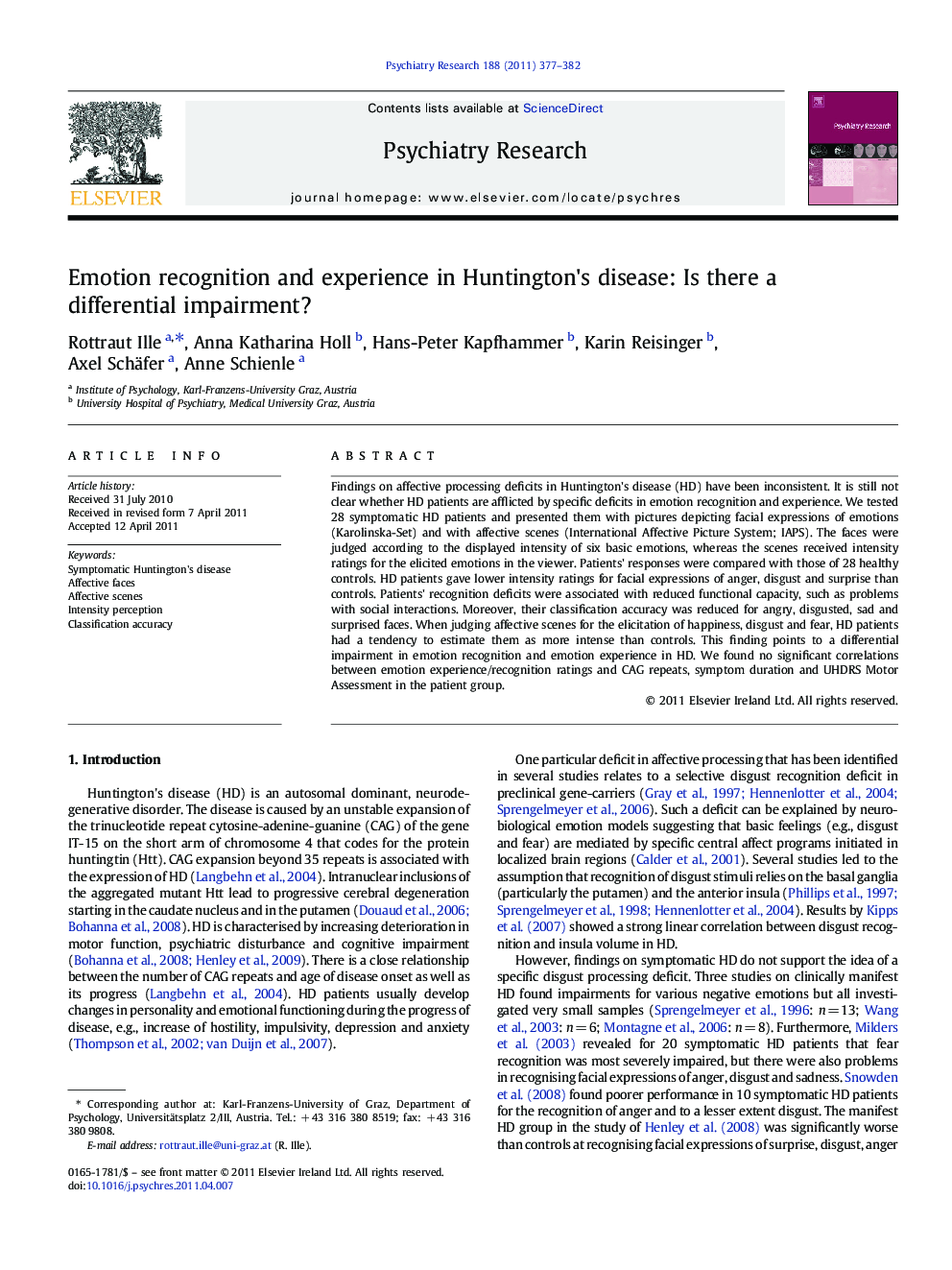| Article ID | Journal | Published Year | Pages | File Type |
|---|---|---|---|---|
| 10305059 | Psychiatry Research | 2011 | 6 Pages |
Abstract
Findings on affective processing deficits in Huntington's disease (HD) have been inconsistent. It is still not clear whether HD patients are afflicted by specific deficits in emotion recognition and experience. We tested 28 symptomatic HD patients and presented them with pictures depicting facial expressions of emotions (Karolinska-Set) and with affective scenes (International Affective Picture System; IAPS). The faces were judged according to the displayed intensity of six basic emotions, whereas the scenes received intensity ratings for the elicited emotions in the viewer. Patients' responses were compared with those of 28 healthy controls. HD patients gave lower intensity ratings for facial expressions of anger, disgust and surprise than controls. Patients' recognition deficits were associated with reduced functional capacity, such as problems with social interactions. Moreover, their classification accuracy was reduced for angry, disgusted, sad and surprised faces. When judging affective scenes for the elicitation of happiness, disgust and fear, HD patients had a tendency to estimate them as more intense than controls. This finding points to a differential impairment in emotion recognition and emotion experience in HD. We found no significant correlations between emotion experience/recognition ratings and CAG repeats, symptom duration and UHDRS Motor Assessment in the patient group.
Keywords
Related Topics
Life Sciences
Neuroscience
Biological Psychiatry
Authors
Rottraut Ille, Anna Katharina Holl, Hans-Peter Kapfhammer, Karin Reisinger, Axel Schäfer, Anne Schienle,
